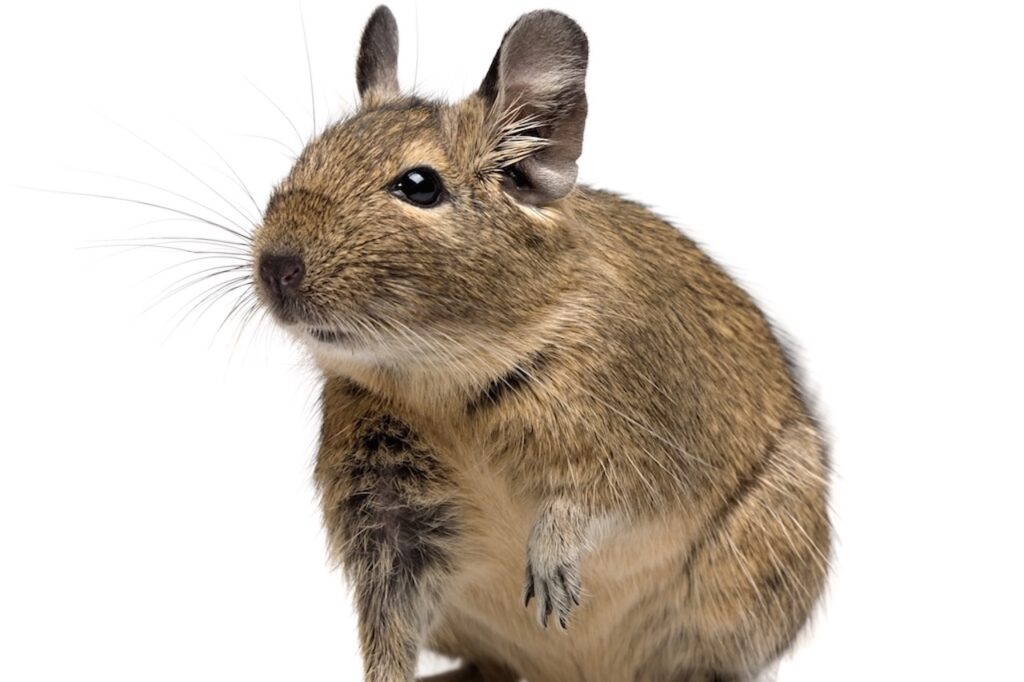This degu profile care health guide introduces you to an energetic and highly social rodent. Native to South America, the degu (Octodon sp.) is curious, vocal, and enjoys exploring its environment. With proper housing, diet, and care, this intelligent animal can become a long-lived and rewarding companion.
General information
- Scientific name: Octodon sp.
- Family: Rodent (Octodontidae)
- Weight: Males: 170–200 g | Females: 170–300 g
- Length: 18 to 30 cm (including tail)
- Lifespan: 6 to 15 years

Recognized coat colors
- Agouti
- Albino
Personality and behavior
- Energetic, mischievous, and curious
- Unlike rats, degus are less cuddly and prefer exploring and climbing
- A safe room for exercise is ideal
- ⚠️ They may chew on furniture and cables — secure the area carefully
💡 Interaction tips:
- May enjoy gentle ear scratches
- Uses a wide range of vocalizations to communicate with other degus and humans
- Highly social: thrives when kept in groups
Health: conditions to monitor
Degus are generally hardy but can suffer from several common health issues:
- Respiratory infections: sneezing, nasal/eye discharge, labored breathing
- Dental malocclusion: overgrown teeth causing pain and difficulty eating
- Tail injury: ⚠️ never lift a degu by the tail — skin may detach and cause serious infection
- Parasites: watch for unusual itching or hair loss
- Bloating (tympany): gas buildup in the gut causing discomfort
- Abscesses, cysts, tumors: any lump should be examined by a vet
- Alopecia: may result from stress, deficiencies, or parasites
- Diabetes: degus are prone — avoid sugary foods entirely
- Cataracts: common and progressive in this species
Important precaution
⚠️ Never pick up a degu by the tail.
The tail skin can slip off easily, leading to intense pain and risk of serious infection. If this happens, seek veterinary care immediately.
With a balanced diet, enriched environment, and regular health monitoring, degus can live long, active lives and build strong bonds with their human companions.















